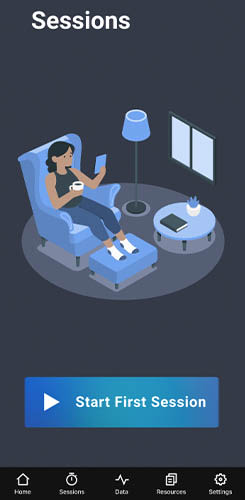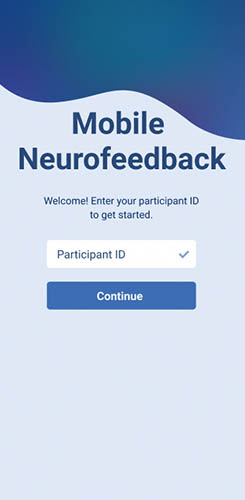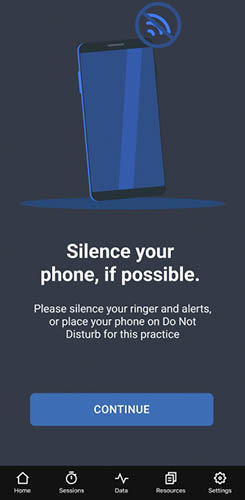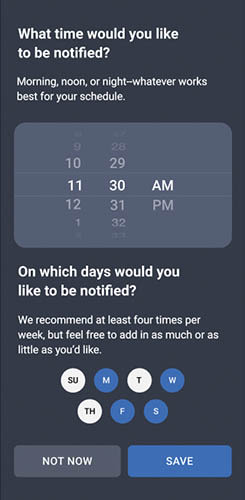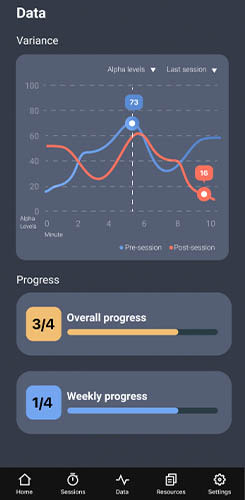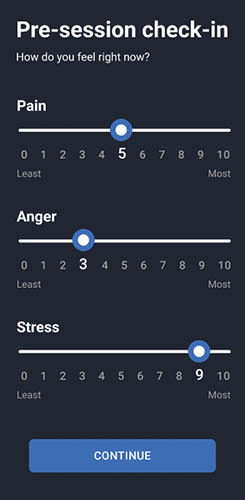“Working with CrossComm has been tremendous, their vision adapting the mobile technology from our lab at Duke is incredibly valuable to ensuring the science we’ve conducted will be translated into a usable product to help patients successfully manage their pain at home.”

Client
Duke Behavioral Health and Technology Lab
Services
Mobile, and Healthcare
CrossComm collaborated with Dr. Eric Elbogen of Duke’s Behavioral Health and Technology Lab to develop a bluetooth-integrated mobile neurofeedback training app for individuals suffering from chronic pain. The application incorporates an electroencephalography (EEG) headset that detects a user’s alphawave, a target brainwave state that has been linked to individuals’ experience of pain. The mobile app allows a user to view their personal brainwave level relative to alpha wave thresholds, and delivers a sound that signals whether the user is within a therapeutic relaxed range.
A prior version of the mobile app was developed by Dr. Elbogen, and the pilot study proved mobile neurofeedback to be feasible and effective among a population of Veterans with Traumatic Brain Injury (TBI). However, the app required changes based on comments from research participants, including better audio delivery and improved design. CrossComm applied for, and was awarded, a Small Business Technology Transfer Program Phase I (STTR) grant to refine the existing application with Duke. The grant also allowed for an expansion of Duke’s mobile neurofeedback research to a more general population of individuals experiencing chronic pain.
Our Approach
A Multi-Disciplinary Research Partnership
CrossComm collaborated with Duke University’s research team to develop an improved commercial-ready mobile neurofeedback app, with the goal of conducting further research on the feasibility of the app for patients who were prescribed opioids and experiencing chronic pain. There are challenges involved with ensuring that both the hardware and software come together to deliver a smooth neurofeedback experience for study participants.
As the principal investigator for the STTR grant, the CrossComm team provided technological expertise and services including hardware evaluation, mobile app development, design, and audio engineering. Ultimately, CrossComm’s goal was to ensure that Duke University’s team felt supported in their research, while having confidence in the technology that we built.
Hardware Evaluation Expertise
CrossComm has decades of expertise evaluating hardware, software, and bluetooth compatability of devices. Our team conducted an evaluation of multiple EEG headsets, assessing whether hardware specs make technical sense to work with both Android and iOS operating systems. We also evaluated any limitations to the hardware and systematically reviewed a number of software development toolkits (SDKs) for each device manufacturer we considered.
Our expertise and knowledge ensured the validity of integrating bluetooth, hardware, and software platforms.Confident in choosing the right EEG headset, CrossComm was able to build a mobile neurofeedback app that was research-ready for Duke’s research team.
Audio Engineering
In the original pilot version of the app, sound was delivered in two modes, on or off. Feedback from early participants indicated that when the sound came on, it was abrupt and alarming. In the improved mobile app, the CrossComm team worked to develop an audio experience that provided a more gradual pleasing sound, rather than a binary jarring experience.
To achieve a relaxing audio experience for users, CrossComm customized a musical arrangement that was delivered through the app. Using audio engineering methods, our developers additionally mapped the outputs of a five-second rolling average of the alpha value to half of a period of a sine wave. In simple terms, we developed the audio experience to gradually increase or decrease in volume depending on the user’s relaxed state relative to the baseline alpha threshold. This allowed for a more refined and pleasing sound experience for those suffering from pain.
Results
The mobile neurofeedback app is currently undergoing testing for feasibility among patients using opioids to treat chronic pain at Duke University. In collaboration with CrossComm and the National Institute on Drug Abuse (NIDA), the recruiting phase is underway at the Duke Behavioral Health & Technology lab. More information can be found at clinicaltrials.gov. Once research is completed for this phase, CrossComm intends to apply for Phase II grant funding for possible commercialization of the mobile neurofeedback app in the future.
If you’re interested in taking the next step in your research project or idea, we would love to hear from you and discuss whether CrossComm would be the right technology development team for you. Tell us more and receive a free assessment from CrossComm.

